Over the next few months we will be introducing you to our new fall 2015 grantees, and so we begin with Meagan Rubel, MPH and PhD candidate from the University of Pennsylvania. Her project is entitled “Effect of diet and parasites on the gut metagenomics of environmentally diverse Africans.”
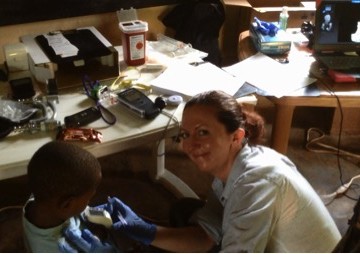
Meagan Rubel collecting phenotype data with a research participant in Cameroon during early 2015
The gut microbiome (GM), or the spectrum of microbes in fecal matter, consists of microbes that span the tree of life and are involved in complex interactions with each other and their human hosts. Recent research on microbiome diversity and composition has shown that the GM has a large influence on nutrition, metabolism, and immune response. Several studies have indicated that diet and caloric intake play a role in the composition of GM diversity and composition, but to date there are few studies that have targeted African populations, and fewer which have included African hunting and gathering populations. This research will characterize the spectrum of variation in gut microbiota across diverse African groups using a sequencing approach that will allow us to look at the genomes of multiple types of microbes, including viruses, bacteria, fungi, archaea, and endemic parasites. Many soil-transmitted worms affect gastrointestinal health and their presence in the guts of infected hunter-gatherers may be a driving force in shaping the overall composition of their gut microbiomes. Through analysis of the complex interactions and functions of gut microbiota in microbial imbalance and nutrition in African populations, we will eludicate the roles of subsistence and parasitism in shaping GM compositions.
- The start of the rainy season in Cameroon makes travel to remote areas a challenging task.
- A hunter-gatherer communal cooking hut in Cameroon.
- Meagan Rubel and Dr. Eric Mbunwe aliquot fecal samples for gut microbiome research by lamplight in a hunter-gatherer hut.



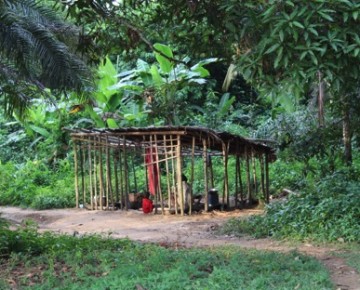
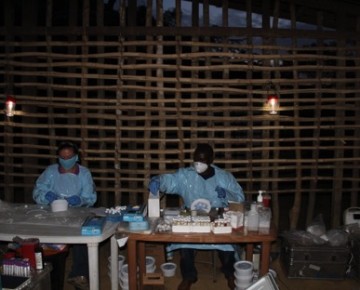
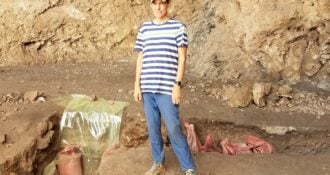
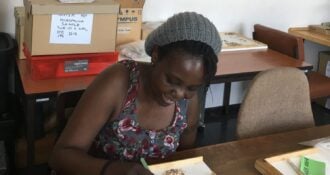
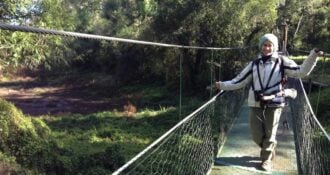
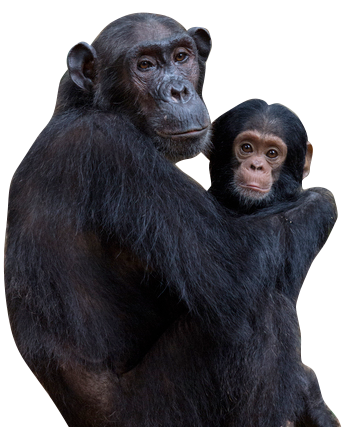
Comments 0